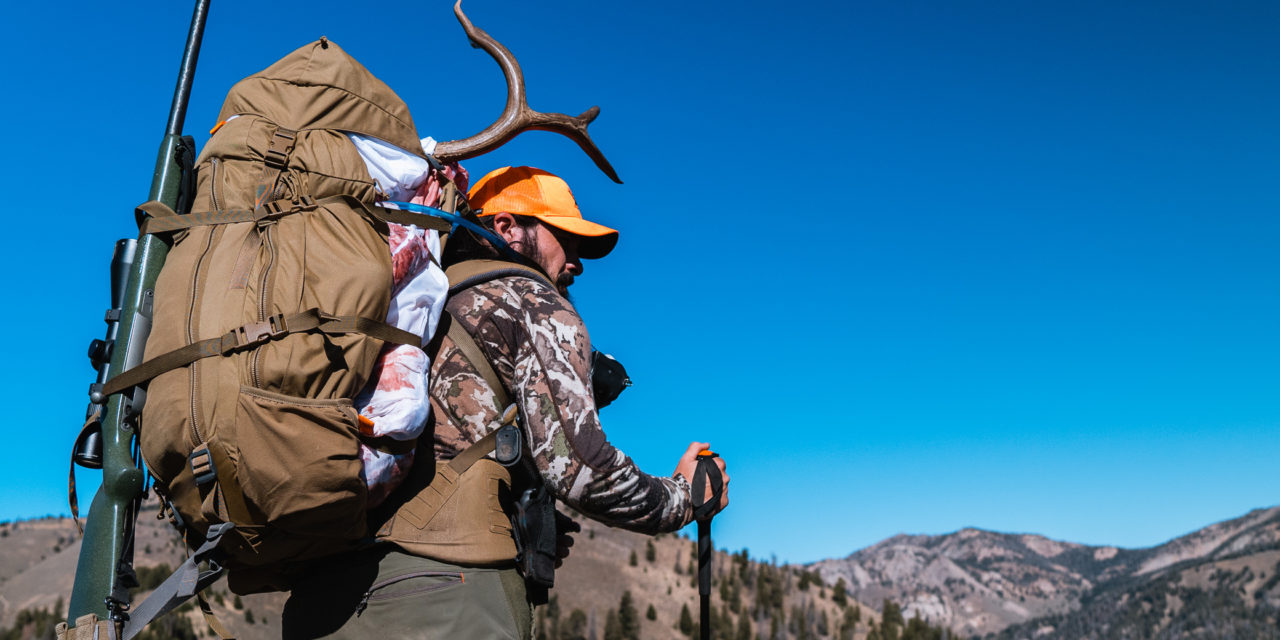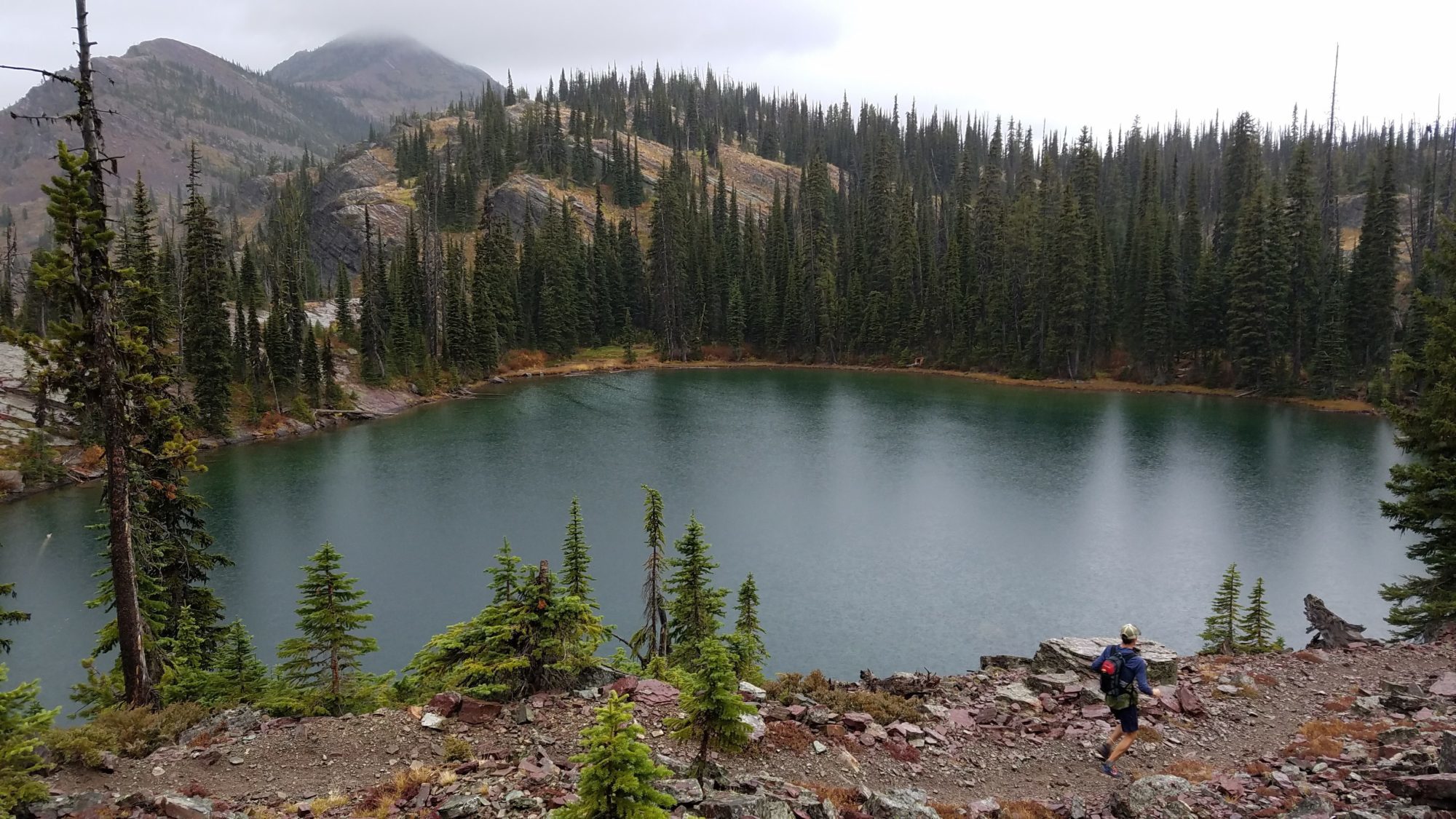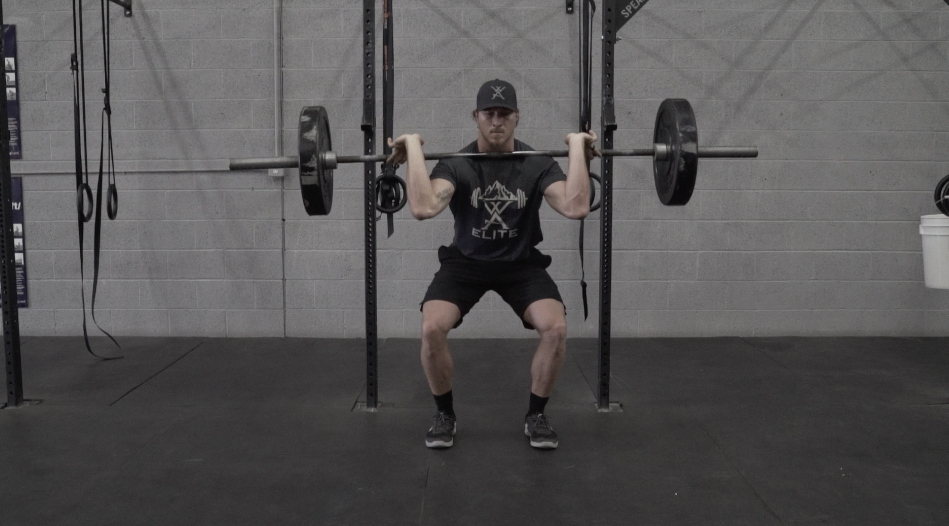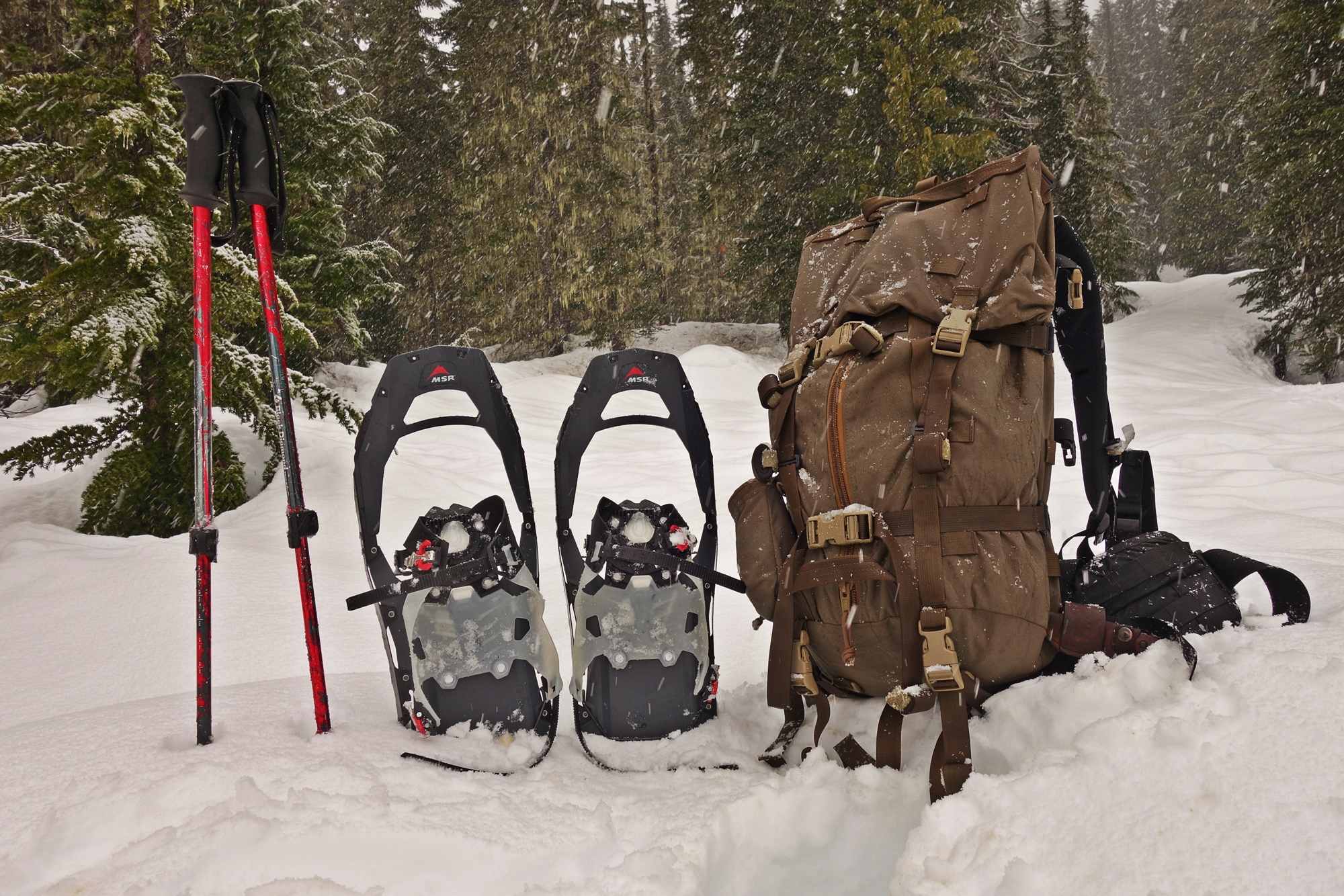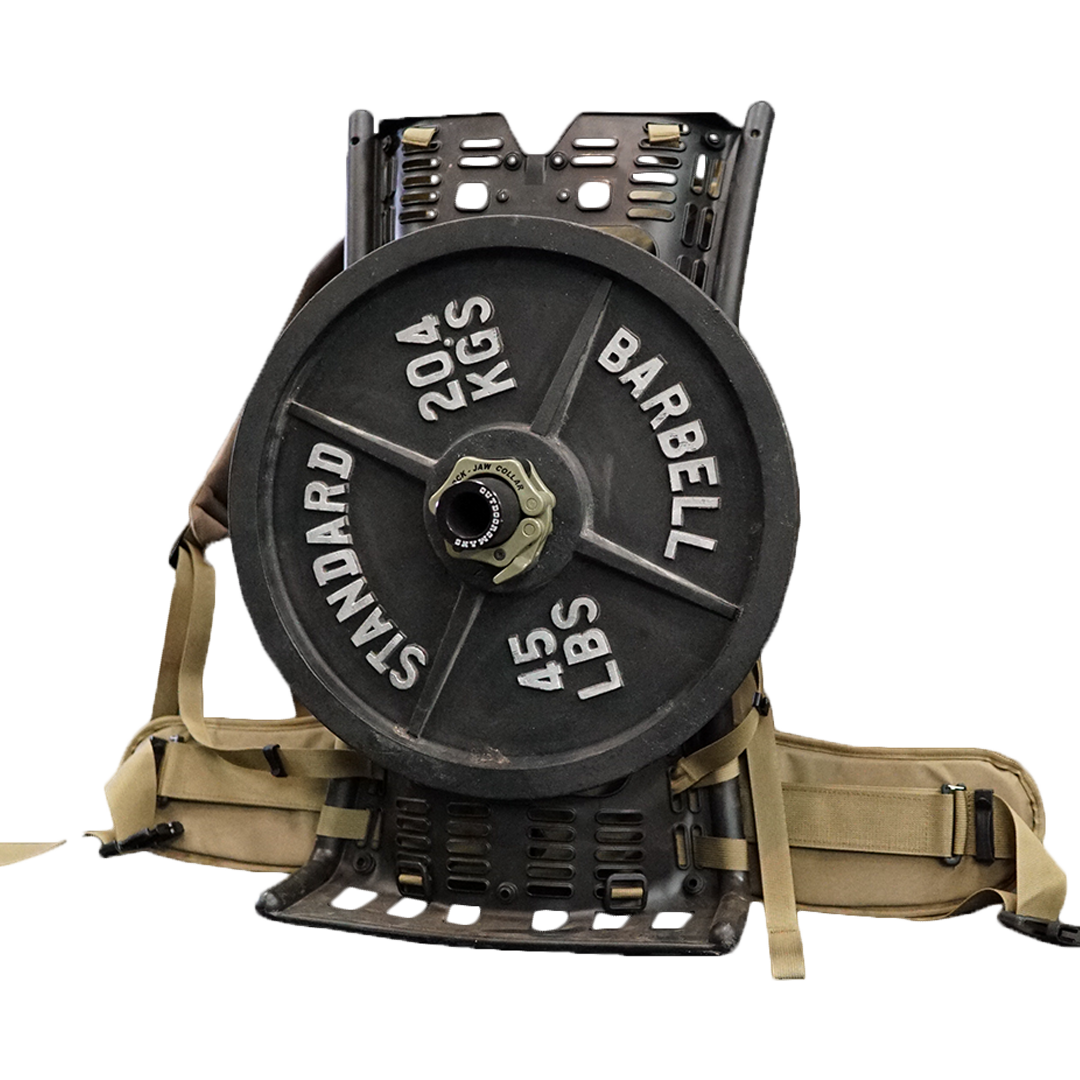It’s no secret that backpack hunting is physically demanding. From carrying camp on your back and traversing merciless terrain day in and day out to just going through the motions of the whole thing. And that doesn’t even touch on when an animal lay at your feet accompanied with the effort it takes handling that situation. The bottom line is everything is harder out there and it should be in your best interest to prepare your body physically for it.
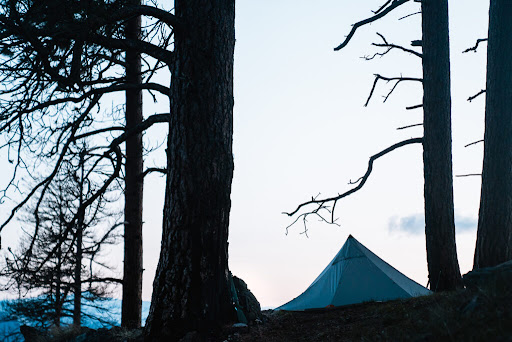
Where I feel the most questions arise surrounding physical prep for backpack hunting though is this. “What do I actually have to do to get prepared? How much time do I need to dedicate?” We see people doing things like ultramarathons, crossfit, lifting heavy in the gym, and even all of the above 6-7 days a week. Kudos to them. While there isn’t a such thing as “too in shape” there is a such thing as not in shape enough though. So, where’s the balance for an everyday Joe that doesn’t have time on their side?
It doesn’t take a ton of time, but it does take discipline. I’m going to break down what I personally do down below when time is running thin. As a husband, father, and busy person across the board this is what works for me.
A More Focused Approach for Backpack Hunting
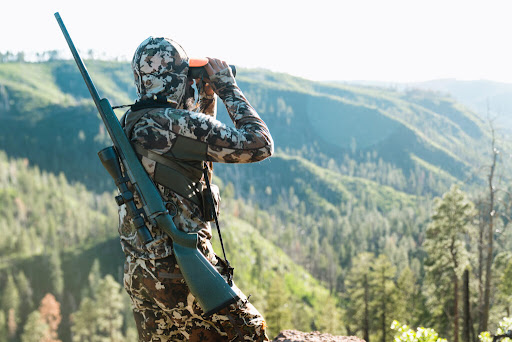
Especially for those short on time, I feel it’s even more important to cater your workouts to what is actually going to help you in the mountains. Don’t get me wrong, I love doing things like curls and bench pressing, and if it makes you happy, you should do these things. However, they’re just not that applicable to backpack hunting. So, for someone lacking time, they’d be better off cutting the fat and taking a more focused approach. Time isn’t going to wait for you to catch up.
Backpack hunting is going to demand leg strength for pushing up those mountains, core strength for stability, a strong back to help with those heavy loads, and the ability to keep going even when you don’t want to. Physical prep, no matter what you decide to do, should reflect these things in some way.
Weighted Pack Hikes
This is a gimme right? While that may be true for a lot of you, I feel that this sometimes gets overlooked, because it might be looked at as “too simple.” It’s not complicated enough, like some routine in the gym. In all reality though, there is no better way to help get ready for hiking with a loaded pack, then well…hiking with a loaded pack. Weighted pack hikes are one of those do it all workouts that help on all fronts. It’s a great balance between strength, stability, and endurance. All of which we need for better backpack hunting.
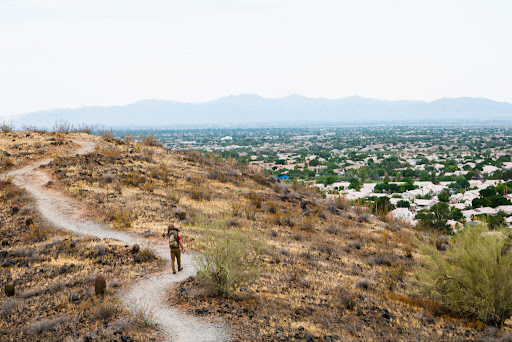
A simple approach doesn’t mean a lack of structure. I like to do what is called “Progressive Overload” with my weighted pack hikes. This is where one progresses the stress they put on their body in steps rather than just going full send right out of the gate. It is my opinion that the body digests this type of training better, which means less chance of injury and more chance that you’re going to keep doing it. And sooner or later you’ll be doing way more than you thought you were capable of.
Here’s an example of what a month of hiking would look like for me using progressive overload:
- Week 1 – 3 mile hike with 35 pounds Monday and Thursday
- Week 2 – 5 mile hike with 35 pounds Monday and Thursday
- Week 3 – 3 mile hike with 50 pounds Monday and Thursday
- Week 4 – 5 mile hike with 50 pounds Monday and Thursday
This can be molded however you see fit to fall in line with your own goals, ability, etc. Increase weight, drop weight, more miles, less miles. Run with it. Well, I should say hike with it…
Trail Running
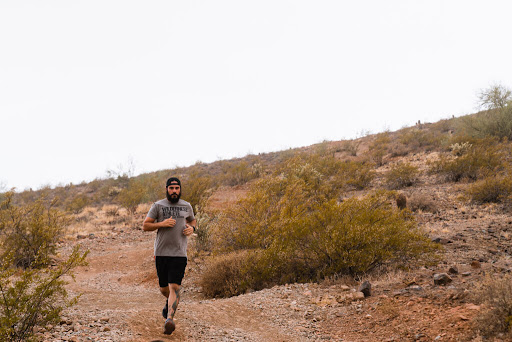
Backpack hunting and endurance are like peas and carrots. And while weighted pack hikes serve on all fronts, pushing your endurance past what is expected of you in the mountains is something I’ve found to be extremely beneficial. One of the best ways that I’ve found to do this is through trail running. It just brings things to a whole new level in terms of performance. Not only are you increasing your aerobic game, but you’re also going to build strength in your legs through running up hills/mountains. And let’s not forget about paying attention to balance and stability throughout the process.
On my trail runs, I like to focus on three things to help structure a workout. Those things are heart rate, distance, and time. I like to keep my heart rate in Zone 3-4(60%-80% of max heart rate) and I won’t let it drop beneath that. This is what I have found to be best for building endurance to backpack hunt.
To figure out your ballpark max heart rate, take your age and subtract that from 220.
When it comes to distance, I approach it the same way I do the weighted pack hikes. I’ll start smaller and build from there in both the distance and the intensity I put out during said distance. An example of this would be doing a longer type of run with some breaks along the way vs. a shorter run with no breaks at all. The breaks I’m taking are usually to manage my heart rate.
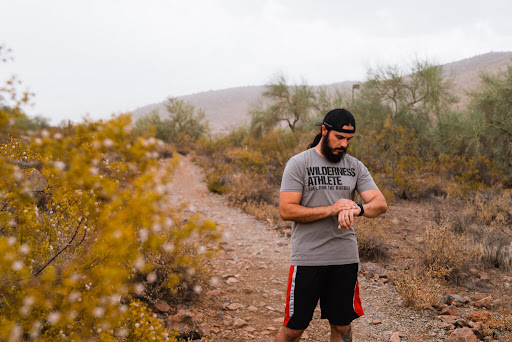
As I’m knocking out these runs, it’s both helpful and rewarding to keep track of my progress. The way I do this is by simply timing myself. The more runs I do, the more my threshold of endurance builds. Meaning my heart rate doesn’t max out as much, so I can run more, which inevitably makes my runs quicker. It’s one thing to just know you’re progressing, but to see it as your time drops? That feels great.
As far as how much to do this goes, that’s on you. I have personally seen progress from just 2-3 times a week. All of this will pay huge when it comes time to load up your pack and head into the backcountry.
Nutrition

I’m not going to spend an immense amount of time here, but I can’t ignore the importance of nutrition in this preparation process. Keep in mind that the title “nutritionist” is not one that I carry. However, I have experienced the pros and cons of eating well vs not eating well. Particularly in the mountains. In the spirit of keeping things simple, here’s what I’ve found.
- It is not necessary to go on a crazy restrictive diet
- Listen to your body
- Eat like an adult
Eating well doesn’t have to mean counting calories, cutting out carbs, etc. Now, if you’re looking to lose some weight, I do think it’s really helpful to track your calories or macros. It’ll give you some great perspective on food and get you to your goal. However, if we’re just talking about living a good life, it’s really not necessary.
Listen to your body. You know what foods don’t make you feel good and you know what’s going to pack on the pounds. It’s all about making good choices. It’s really that easy. Stop grabbing that donut at the gas station and start grabbing an apple instead. Pay attention to when you’re actually full, and stop eating, instead of finishing your plate just because there’s still food on it. Make better choices like this and you’ll be better off in the mountains and just life in general.
Better to Be Ready for Backpack Hunting
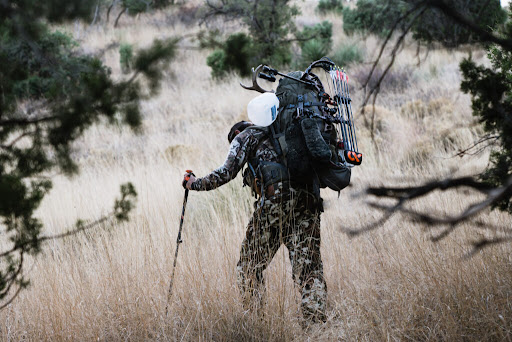
Backpack hunting is not for the faint of heart and it requires effort to do on a regular basis. Just because that is true though doesn’t mean it needs to rule your life though. If 3 times a week is all you can afford, maybe do 2 trail runs and a weighted pack hike. The duration of each will reflect the distance you’re hiking or running. We can keep things simple, but intentional at the same time, and you’ll be ready for the backcountry.
With 90% of my hunting trips being backpack hunts, I can attest to all of this. I’m a husband, father, and work my ass off to keep the lights on. All that said, I love to backpack hunt and know that not preparing is not an option. I look forward to these trips too much to not care about being ready for them. Be intentional, stay focused, and keep it simple. Just cause you’re an average joe, doesn’t mean you can’t experience above average things.

